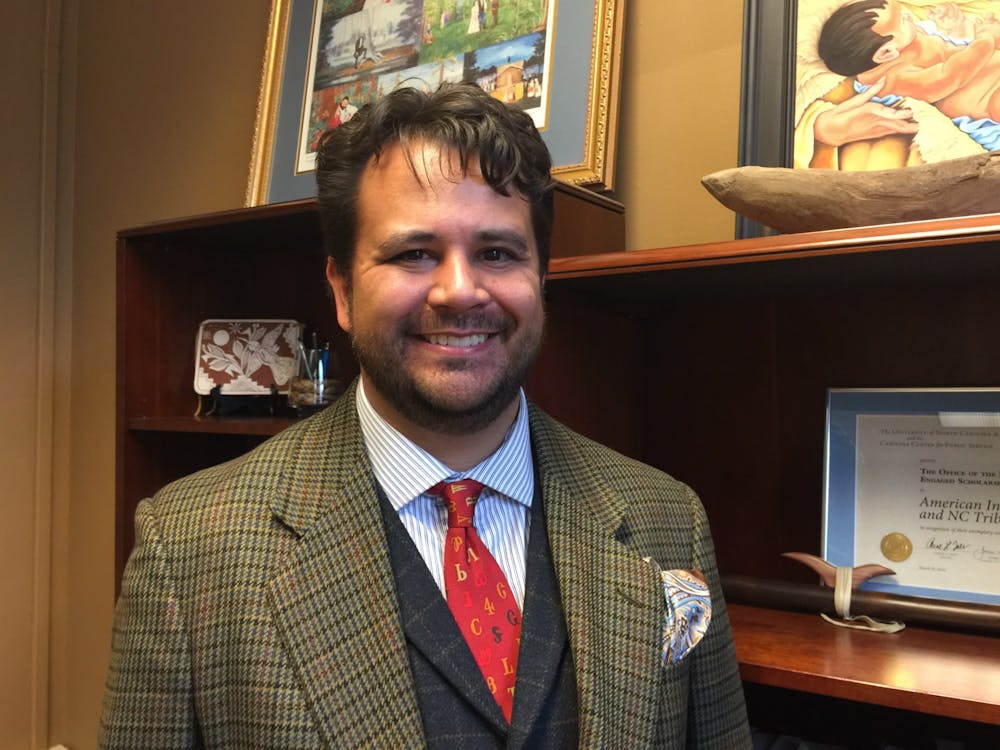Less than 2,500 people in the United States are native Cherokee speakers, putting the language in an official State of Emergency. Cherokee classes at UNC are helping to preserve this endangered language.
Language endangerment begins when a generation grows up at home without the language spoken, Ben Frey, a professor in the department of American studies, said. Frey teaches a Cherokee language class and a course on America's threatened languages.
Frey said the dwindling number of native speakers dates back to the United States’ civilization policy, an attempt to force Native Americans to conform to mainstream American society and European-American cultural norms.
“The government rounded up native children from their families, beat them and washed their mouths out with soap,” Frey said.
Cherokee children were forced to attend boarding school where speaking their native language was frowned upon, Frey said. As time passed, more and more people did not raise their children speaking the language, resulting in less native speakers.
Misha Becker, a professor in the department of linguistics, also attributes the decrease in speakers to a loss of the Cherokee languages in public areas.
“Another part of the reason it is endangered is that over time, the language came to be used in fewer and fewer domains of life,” Becker said.
Frey blames capitalism for the takeover of such domains. He said big businesses, such as Food Lion, come into Cherokee communities and become another domain without Cherokee culture or language. Frey said taking back these domains can help revitalize the language.
“The nature of the situation is that you’re trying to take back every domain that has been overrun by English,” Frey said.



